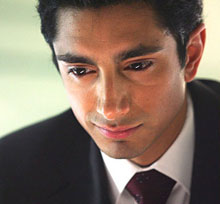 By Craig Detweiler
By Craig Detweiler
Reprinted with permission from ConversantLife.com.
“Slumdog Millionaire” may be the best film of the year. It juxtaposes the hopes embodied in the game show “Who Wants to Be a Millionaire?” with the depressing squalor of slums. Director Danny Boyle captures the sounds, rhythms, and ethos of India. The movie is intense and absorbing. Yet, heart, soul and romance endure amidst even the most pressing conditions.
Given the recent madness in Mumbai, “Slumdog Millionaire,” based upon Indian diplomat Vikas Swarup’s bestselling novel, “Q and A,” has also become the most prescient film of awards season. We struggle to understand how a small band of terrorists brought a massive Indian metropolis to a standstill. We can find parallels to the attacks on Mumbai’s financial center to the assault on the World Trade Center. But the political and religious complications of Pakistan, India, and the disputed Kashmir regions make this latest round of terrorism vexing to many in the west. For those trying to connect to the humanity lost in the attacks, the film offers insightful empathy. It illustrates how economic desperation can lead to violent measures.
“Slumdog Millionaire” plunges audiences into Mumbai’s teeming slums. We follow the misadventures of Jamal Malik, a chai wallah determined to win over the beautiful and elusive Latika. Many obstacles stand against their love. They have both grown up as orphans along with Jamal’s best friend, Salim. Their education has been limited to the streets. They’ve been exploited by all manner of scammers. Jamal, Salim and Latika learn to lie, cheat or steal to survive, forming an unlikely three musketeers. So how does Jamal come to compete on “Who Wants to Be a Millionaire?”
The movie unfolds in an inventive flashback structure. Brutal contemporary scenes of police interrogation are followed by Jamal’s poignant childhood memories. The competing sensibilities of Boyle and screenwriter Simon Beaufoy pull off a volatile mix. Boyle’s stylish filmography ranges from the heroin junkies in “Trainspotting” to the inspiring Christmas tale, “Millions.” Beaufoy penned the feel-good musical “The Full Monty.” For “Slumdog,” Boyle’s gritty handheld aesthetic counterbalances Beaufoy’s uplifting script. It keeps things from feeling too convenient or easy.
The filmmakers draw upon the robust Bollywood film style and create a loving homage, including the requisite dance sequence. The film features legendary Indian film stars like Anil Kapoor but depends upon a cast of unknowns led by Dev Patel. Three different actors portray each of the leads at various stages of their young lives. The soundtrack also crackles with the energetic sounds of composer A. R. Rahman and Sri Lankan rapper M.I.A.
The movie blends Hindu notions of karma with western virtues of pluck and initiative. Fate and destiny are invoked repeatedly. Jamal and his interrogators rely upon the notion that “It is written”–fate, the future, romance. But the film moves beyond determinism, toward kriymanan karma, the notion that the karma created today will bear fruit in the future. Jamal takes actions that may alter his fate.
It also illustrates why poor, young Muslims might be tempted to join a terror cell. As boys, Jamal and Salim were on the receiving end of attacks from Hindus. They witnessed the murder of Jamal’s mother. Their resulting lot in life is sometimes lower than even the untouchable caste in India. While some were enriched by Mumbai’s economic boom, plenty of Muslims, upper caste Hindus, Christian converts and untouchables have been left behind. How would you respond to a world without promise or limited opportunities? Frustration often results in violence, with plenty of blame to be shared on all sides of the religious and political spectrum. While Jamal remains driven by love, Salim comes to rely on the power of a gun.
How interesting to consider the timely message of “Slumdog Millionaire” in light of the recent Muslim holiday, Eid-Ul-Adha. The annual festival of sacrifice recalls the story of Abraham and his son, Isaac. It is also a reminder of the common roots of the Abrahamic faiths: Judaism, Christianity and Islam. We often think of terrorists as suicide bombers, willing to give up their life for a cause. But “Slumdog” shows the sacrifices and resolve made by Muslims simply to stay alive. Jamal doesn’t play “Who Wants to Be a Millionaire?” as a get rich scheme. His sole attachment is to Latika. He could be bitter, but he decides to capitalize on every opportunity thrust his way. From serving as a tour guide at the Taj Mahal to answering questions under TV studio lights, Jamal’s rags to raja life proves “bizarrely plausible.”
A mere movie cannot restore the lives lost in the terrorist attacks. It can’t preach a funeral or administer last rites. It won’t necessarily restore peoples’ sense of security or provide an answer to why bad things happen to good people. It may oversimplify a complex social history. But while mourning those murdered in Mumbai, we may solace in the tough, life-affirming message of “Slumdog Millionaire.” It features the train station we saw in the news littered with bullets and bodies. Yet, the film locates romance within that same bustling Mumbai train station. I can’t imagine a more redemptive moment in a new movie this holiday season.


